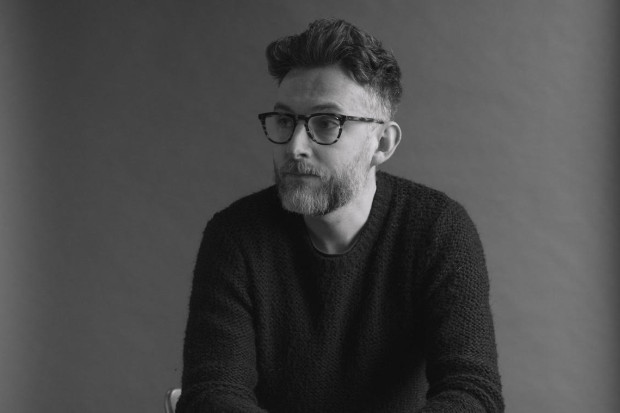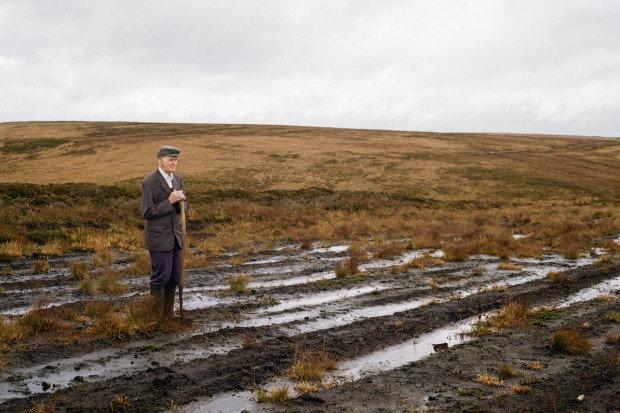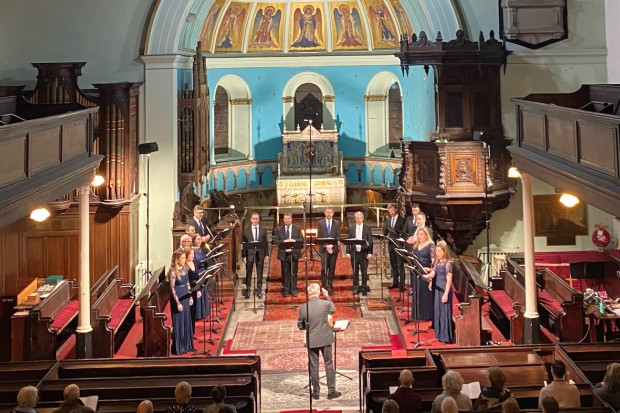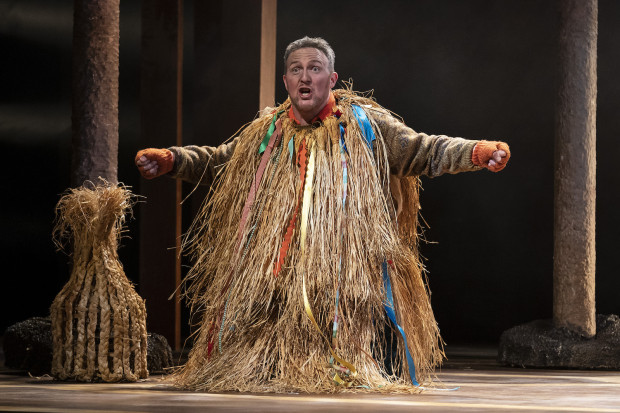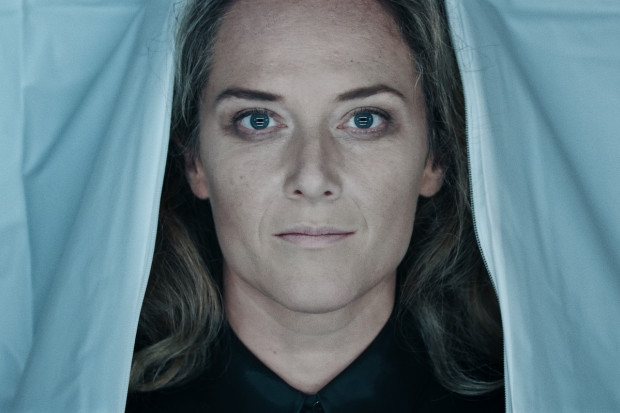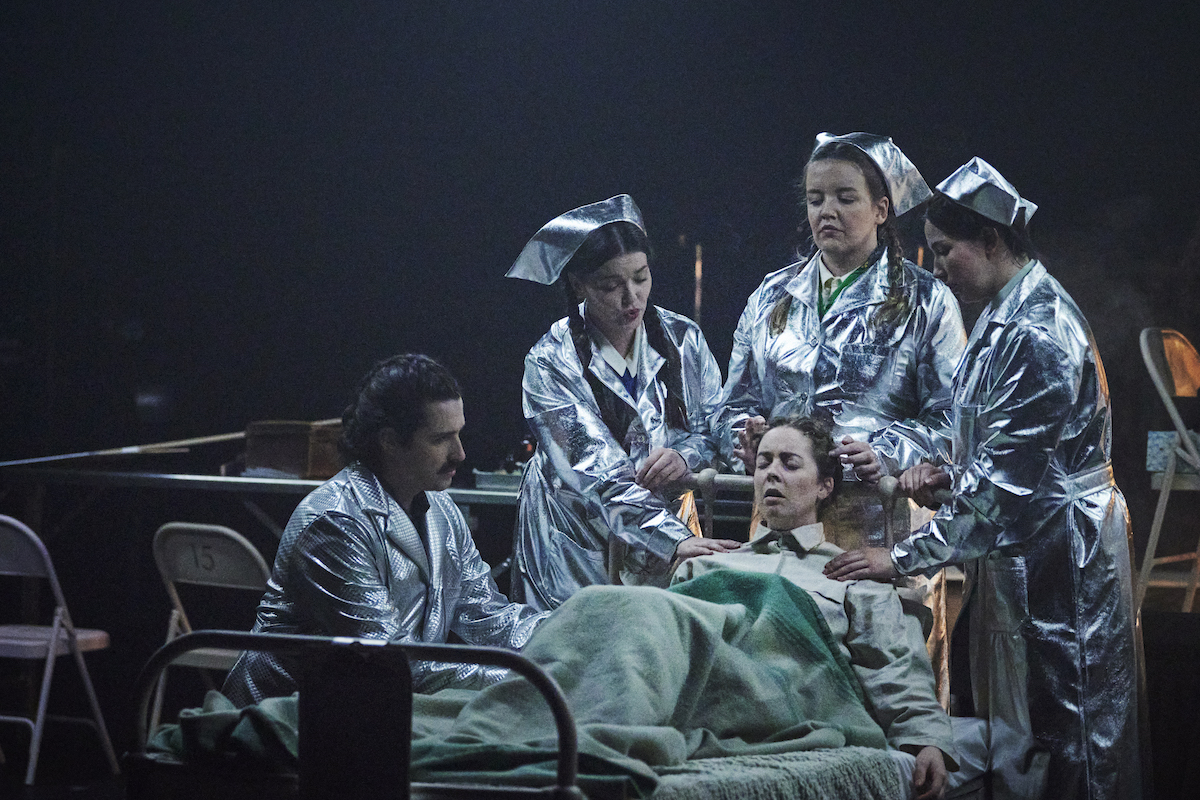
Clockwise from left: Fearghal Curtis, Sarah Shine, Sinéad O’Kelly, Amy Ní Fhearraigh and Daire Halpin. (Photo: Ros Kavanagh)
A Radical and Timely Work
It’s a niche pitch for a new genre – ‘Irish opera written in the 21st century exploring the abuse of women in mental institutions by people in power’ – but two examples this year suggests a trend may be starting, should you wish to get ahead of it.
Michael Gallen’s new opera, Elsewhere (15 Nov.), examines the 1919 Monaghan Asylum Soviet, when staff and inmates staged a strike and lock-in as leverage to negotiate better working conditions and gender pay equity. The setting, though, is an unspecified number of decades later, as we experience the lock-in through the memories of Celine, a resident of the Asylum.
The work opens with Daire Halpin’s Celine singing, anxiously, a slowly-building phrase, its meaning masked by the ambiguity of the parts we hear. ‘Quiet. Quiet please. Quiet please, he’s—. Quiet please, he’s a—. Quiet please, he’s about. Quiet please he’s about to speak.’ As she sings, the instrumentalists – the French group Ensemble Miroirs Étendus, conducted by Fiona Monbet and all dressed in casual black – join her on stage; as the work progresses, they are as integrated in the performance as any of the singers.
Celine, or part of her, thinks she is the revolutionary Peadar O’Donnell, who led the strike, but matters are complicated by who informs us of this fact: the charismatic and endlessly entertaining Inspector of Lunatics (Adrian Dwyer) – the villain of the piece, and the representative of all things capitalist and autocratic within the work. His whole part could have been written from libertarian trolls online. Celine’s story is far more ambiguous and subjective than he implies. It is a fact that Celine sees herself as O’Donnell, but the fact alone doesn’t get to the heart of the matter.
The libretto, by Gallen himself with the poet Annemarie Ní Churreáin and playwright Dylan Coburn Gray, examines two radical acts. In the first, we see the lock-in strike recreated as remembered by Celine, and her idolisation of O’Donnell. At one point, she mimes his words in slow motion as the orchestra and singers surround her, fawning. The second radical act is unique to Celine. It’s one of self-examination and self-acceptance, in the face of external authority and internal doubt and fear.
Gallen’s compositional style draws heavily on American post-minimalists, in particular Julia Wolfe’s relentlessly intense sound. One of the great advantages of this type of music is how profound a small change can be. After a couple of minutes suspended by two or three high notes occupying the same minor third, the addition of a low tonic pedal tone provides an extraordinary sense of stability and reassurance.
Off the rails
In the last half hour the opera is, calmly and deliberately, driven completely off the rails. The Inspector of Lunatics informs the audience, right after one of the most heartbreaking moments, that he’s going to sing a song, and moreover that he’s doing it against the orchestra’s wishes. And the orchestra and cast do back him up, looking bored and annoyed and sounding like Tom Waits’ band half-assing it. There are cabaret numbers with full dance routines and rap battle-style duels between instrumentalists. The conductor joins Celine on the bed while the Inspector derides them as lesbians. There’s confetti and costumes and communist stars.
And amongst all this, in the latter part of the show, there are moments of extreme tenderness – most notably when Celine, who we may have taken for dead, wakes up and is confronted by herself – not incarnated as or inhabiting O’Donnell, but her more mundane self, played by Amy Ní Fhearraigh, whom she finds sweeping up confetti on the stage. The two aspects of her sing to each other what amounts to a beautifully choreographed love duet, as she grows to accept both parts of herself.
The director Tom Creed, with choreographer Shawn Fitzgerald-Ahern and designer Katie Davenport, balance the freewheeling momentum of these scenes with the quieter ones. And there’s a sense throughout of the work itself as political statement, not only in the themes of the opera but the use of the medium itself: the non-hierarchical interaction of the singers and the instrumentalists; the interaction between set design, choreography, and lighting; the collaborative construction of the libretto.
It’s been a century since the events in Monaghan, when the 1918 flu epidemic was in its third wave. Then as now, workers were demanding more from their employers. Today, America is seeing what the former US Secretary of Labor Robert Reich has called an unofficial general strike, as workers – especially those called ‘essential’ at the beginning of the pandemic and now called ‘unskilled’ – refuse to return to work without improvement in pay and conditions. Elsewhere is a radical work, and a timely one. It’s a collectivist opera in form and spirit.
Visit www.straymaker.com and http://michaeljgallen.com.
Published on 24 November 2021
Brendan Finan is a teacher and writer. Visit www.brendanfinan.net.










